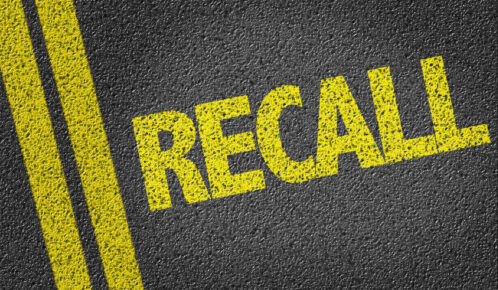People who have suffered injuries caused by others might wonder, “What will it cost me to pursue a personal injury case?” Most injury lawyers in Chicago, Illinois, take on cases on a contingency fee agreement. This agreement saves you from incurring costs upfront. Instead, the lawyer will only earn legal fees if you win the case through a settlement or lawsuit process. The percentage a personal injury lawyer will charge depends on the jurisdiction and firm’s policies. You will discuss this fee with a lawyer and reach an agreement during the initial consultation.
Table of Contents

A recent survey shows that 9 out of 10 plaintiffs who retained a lawyer received a personal injury settlement or award. Working with a lawyer also helped maximize the amount of compensation awarded. Plaintiffs who sought legal representation received about $77,600, while those representing themselves received only $17,600. These figures show that your best shot at getting a favorable outcome in a personal injury case is hiring a lawyer with a demonstrated record of success in such cases.
Call 312-600-0000 to discuss the cost of pursuing your personal injury case with Ankin Law. Consultations are free.
Questions to Ask During Your Initial Consultation About Case Fees
You should discuss costs during your initial consultation with a personal injury lawyer. Asking the right questions about case fees can help you gather the information necessary to make an informed decision and avoid conflicts in the future.
Do You Charge for a Consultation?
A consultation with a lawyer is essential in making an informed hiring decision. A consultation can happen face-to-face, online, or via phone call. Most personal injury lawyers in Illinois do not charge for initial consultations. You should, however, confirm with the lawyer.
Ask about any terms and conditions of the consultation. Some lawyers may not charge for the first 30 minutes, but time beyond that may attract some fees.
How Do You Charge Your Legal Services?
Lawyers employ different charging methods for different legal services. They may, for instance, charge a fixed fee for drafting a demand letter if that is the only service you need. They may also charge an hourly fee if you just need someone to be a personal representative of your deceased relative’s estate.
A contingency fee agreement is the most common charging method used by personal injury lawyers. This agreement is also called a ‘no win, no fee’ arrangement. Under this arrangement, you will not pay any legal fees if you lose the case. The legal fees will be deducted from your payout if you win.
You should agree on the percentage of the contingency fee during the consultation. You should also agree on what other costs your lawyer will deduct from your settlement or court award.
Could the Fees Change?
Contingency fees are usually 33% of the compensation secured on behalf of the client. Some lawyers increase the percentage as the case goes from one stage to another without resolution. Contingency fees for a case that goes to court and resolves at trial, for instance, may rise. Find out if your charges might change during the case. Also, ask what factors might contribute to that change.
Are There Additional Costs?
This question requires your lawyer to review your case again to ensure there are no costs that may arise in the future. Doing that prevents surprises and misunderstandings down the road.
Who Will Cover Case-Related Costs Before Recovery?
Most contingency fee agreements specify that the lawyer will foot the bill for pursuing a personal injury case. The lawyer will deduct those costs and legal fees from a settlement or award. You should, however, ask your lawyer this question during the initial consultation to avoid unpleasant surprises.
When Will You Get Paid?
Ask the lawyer when he or she expects to be paid. In a contingency fee arrangement, your lawyer will get paid after the insurance company or court awards you compensation.
Are Your Legal Fees Negotiable?
Regardless of the fee structure, there may be an opportunity to negotiate the fee and save a few dollars. Some accomplished personal injury lawyers may, however, be reluctant to lower their fees. A lawyer may be willing to lower the fees if he or she thinks that your case is strong and likely to result in a favorable outcome.
What Are Contingency Fees?
Contingency fees are a form of payment to a lawyer, which happens when a plaintiff secures a payout in a personal injury case through a settlement or trial process. In other words, your lawyer will get paid if you receive compensation.
When you agree to hire a personal injury lawyer on a contingency fee basis, the lawyer will deduct an agreed-upon percentage from your compensation. This percentage is about 33% (or a third). Various factors affect the amount your lawyer takes from your recovery. Some factors include the circumstances of your case, who will cover case-related expenses, and the type of agreement entered.
Types of Contingency Fee Agreements
Sliding Scale
There are two versions of sliding scale contingency fees. The first version provides that the lawyer takes a percentage that fluctuates based on the stage at which the case gets resolved. The lawyer may, for instance, agree to take 25% if the case settles before filing a lawsuit, 33% if it settles after filing a lawsuit, and 40% if it is won at trial.
The second version provides that a lawyer takes a percentage that changes based on the payout awarded to the client through settlement or trial. The lawyer may, for instance, agree to take 40% of the first $20,000 recovered on the client’s behalf, 30% for the next $30,000, and 20% for any amount above $40,000.
Contingency Hourly Arrangement
This arrangement does not require you to pay your lawyer any money upfront. Instead, the lawyer will keep a log of hours worked and charge you per hour once you win a settlement or court award. For instance, if your lawyer charges $300 per hour and worked on your case for 15 hours, the attorney will be entitled to $4,500 as legal fees. Payment of the $4,500 is contingent upon winning the case and recovering damages.
Mixed Hourly Contingent Arrangement
This arrangement requires you to pay a portion of your lawyer’s hourly rate upfront and the rest only if you secure compensation. For instance, if your lawyer agrees to take $300 per hour, you may have to pay $50 per hour until you receive compensation. Your lawyer will take the remaining $250 per hour from your compensation.
Court Costs and Additional Expenses
Besides attorney’s fees, pursuing a personal injury claim involves court costs and additional expenses. These costs will be there even if your lawyer agrees to work pro bono. Common costs in personal injury claims are as follows:
Court Costs
Court costs constitute filing fees ranging from $100 to $400, jury fees, and delivering the complaint and summons to the defendant. You may also incur the cost of getting a copy of in-court testimony. A page costs between $2 and $4. So, the entire transcript may cost you up to $400.
Administrative Expenses
These expenses include postage, travel, legal research, and preparing trial exhibits. Administrative costs for straightforward and short cases with limited evidence are significantly lower than those for complex cases that drag in courts for years.
Deposition Costs
A deposition is a sworn interview session in the discovery phase of a personal injury case. This session allows each party in a lawsuit to gather evidence that may be presented at trial. If you request deposition, you will be responsible for covering the court reporter’s fees and the cost of obtaining a transcript copy.
Investigation and Evidence Collection Costs
These costs are usually a few hundred dollars in most cases. They may, however, run into thousands of dollars if your case requires detailed research and enlisting the services of a private investigator.
Expert Witness Fees
Expert witness fees take a huge chunk of your expenses in a personal injury claim. In fact, they are the biggest expense after legal fees. An expert witness may bill you a few hundred dollars per hour to assess your case, compile a report, and testify in court in your favor. A simple case requiring one expert witness may cost you several thousand dollars. The cost may increase significantly if your case involves multiple expert witnesses.
Personal injury lawyers at Ankin Law can carefully assess the details of your case to determine how much it will cost you to pursue compensation. Contact us today to schedule a free consultation.



